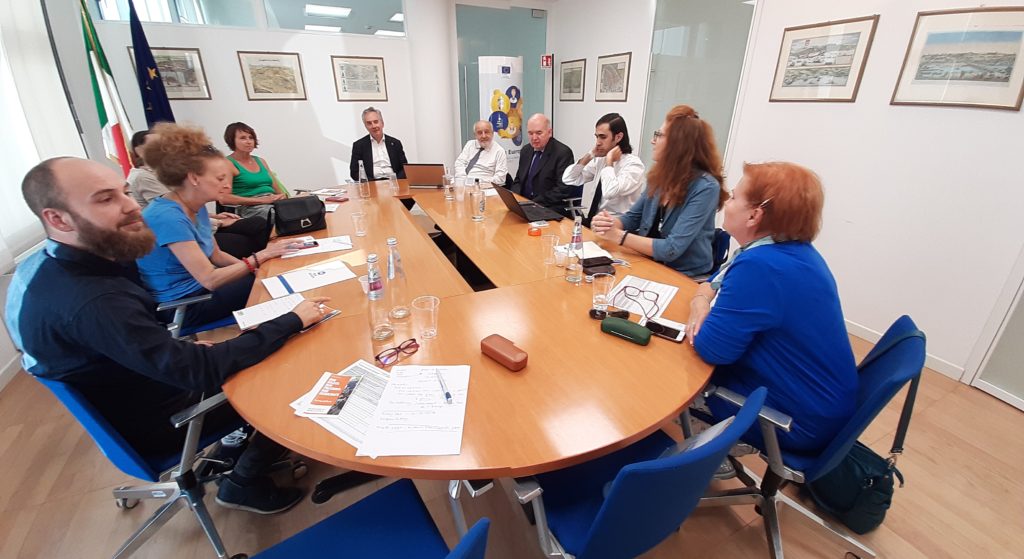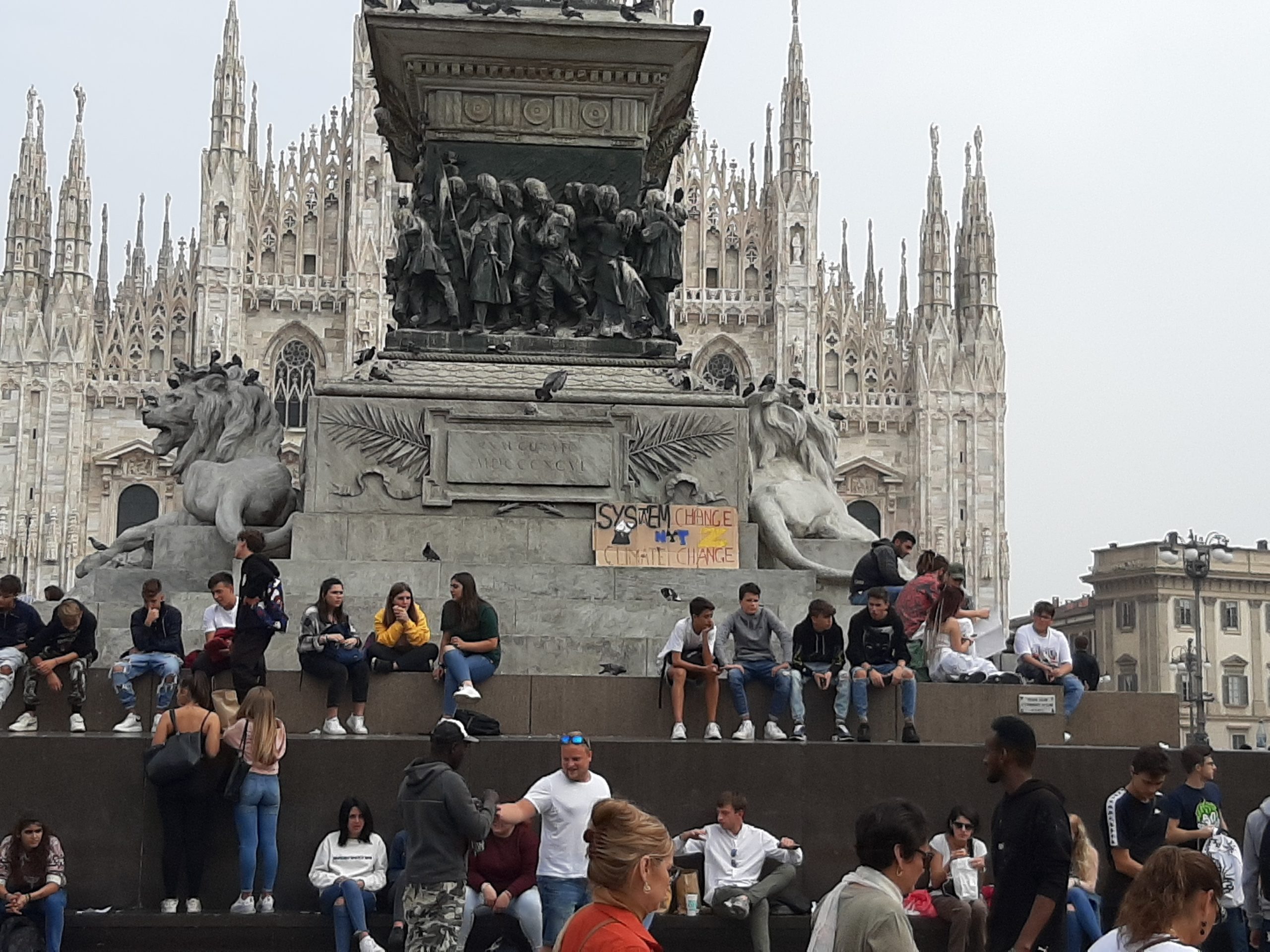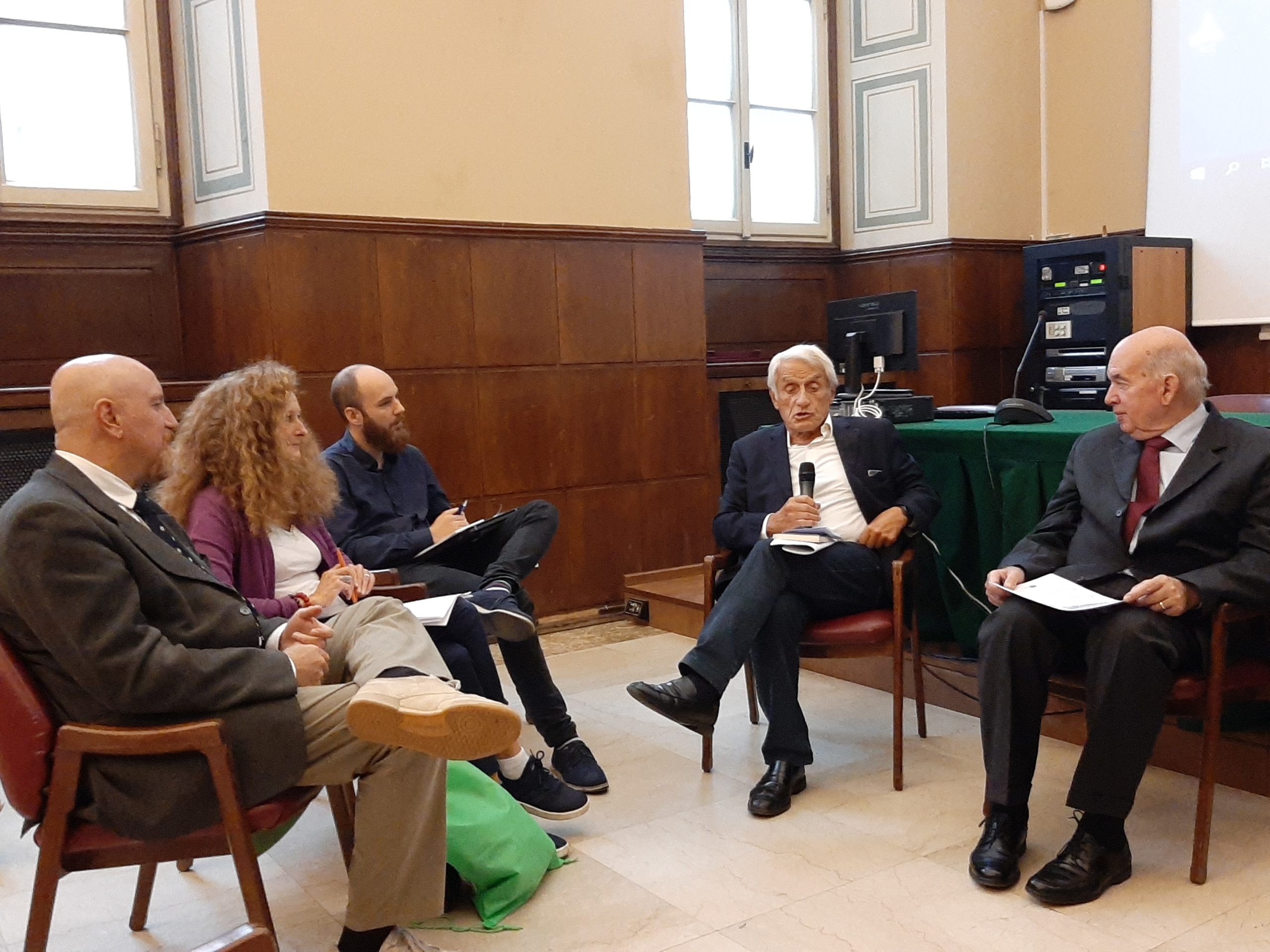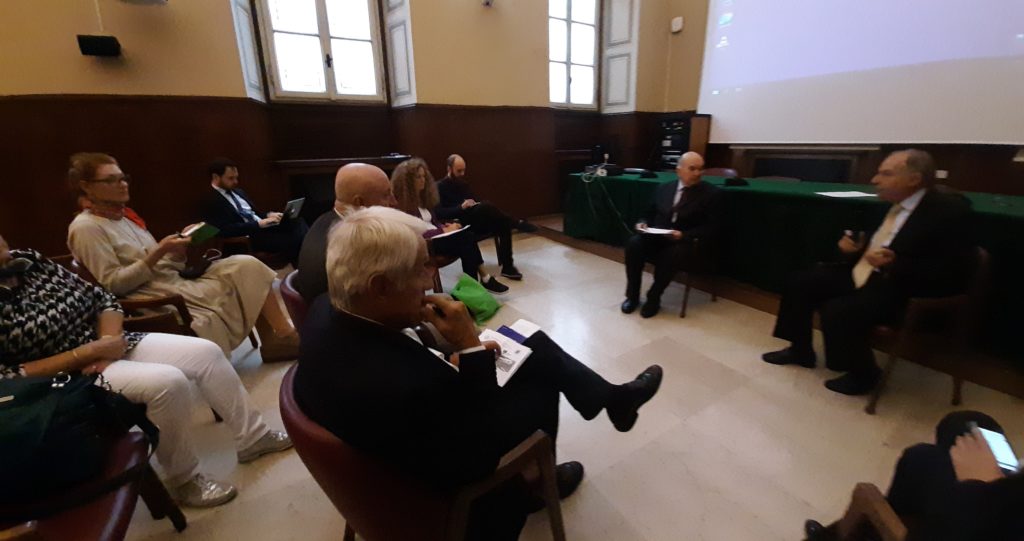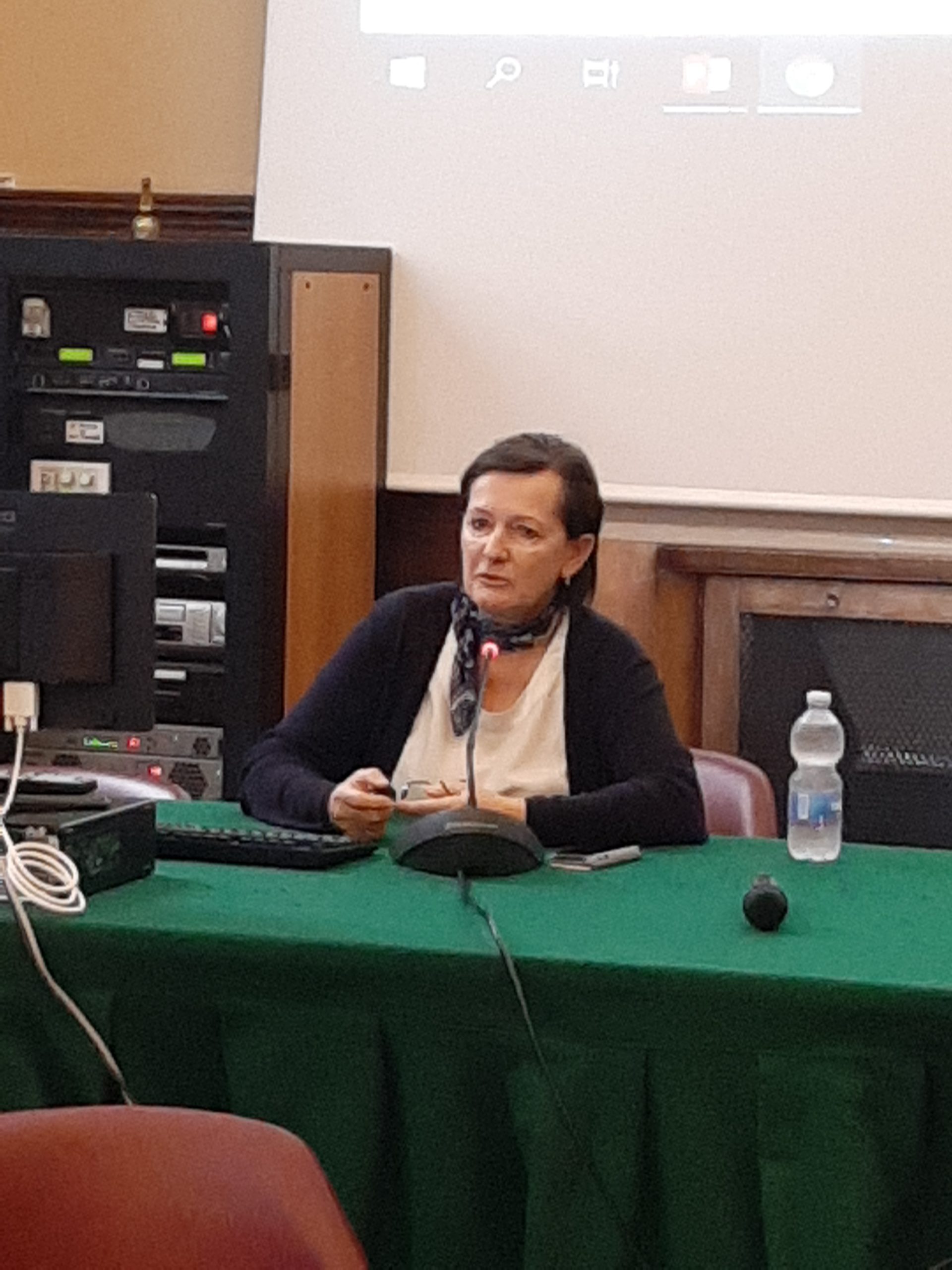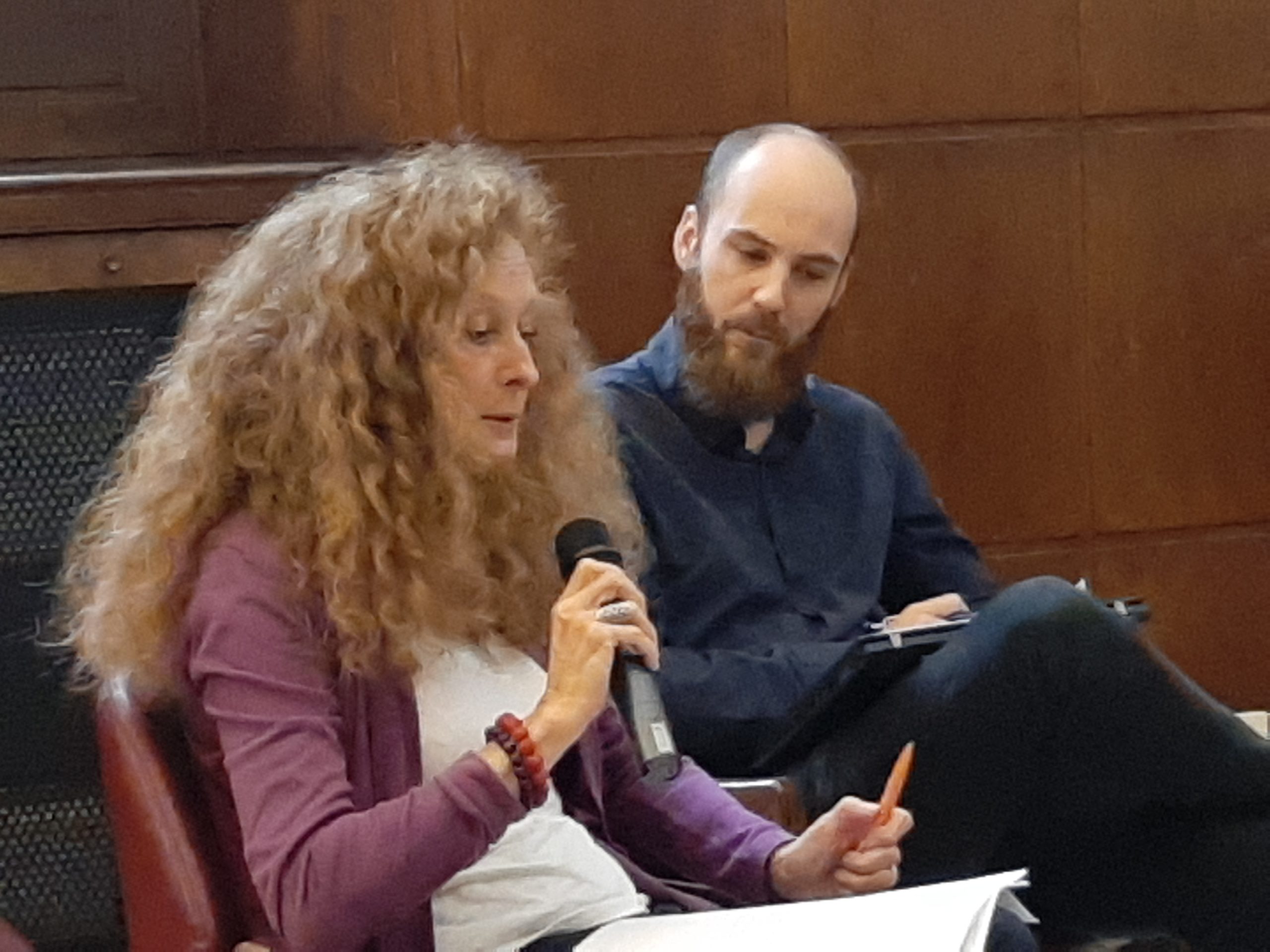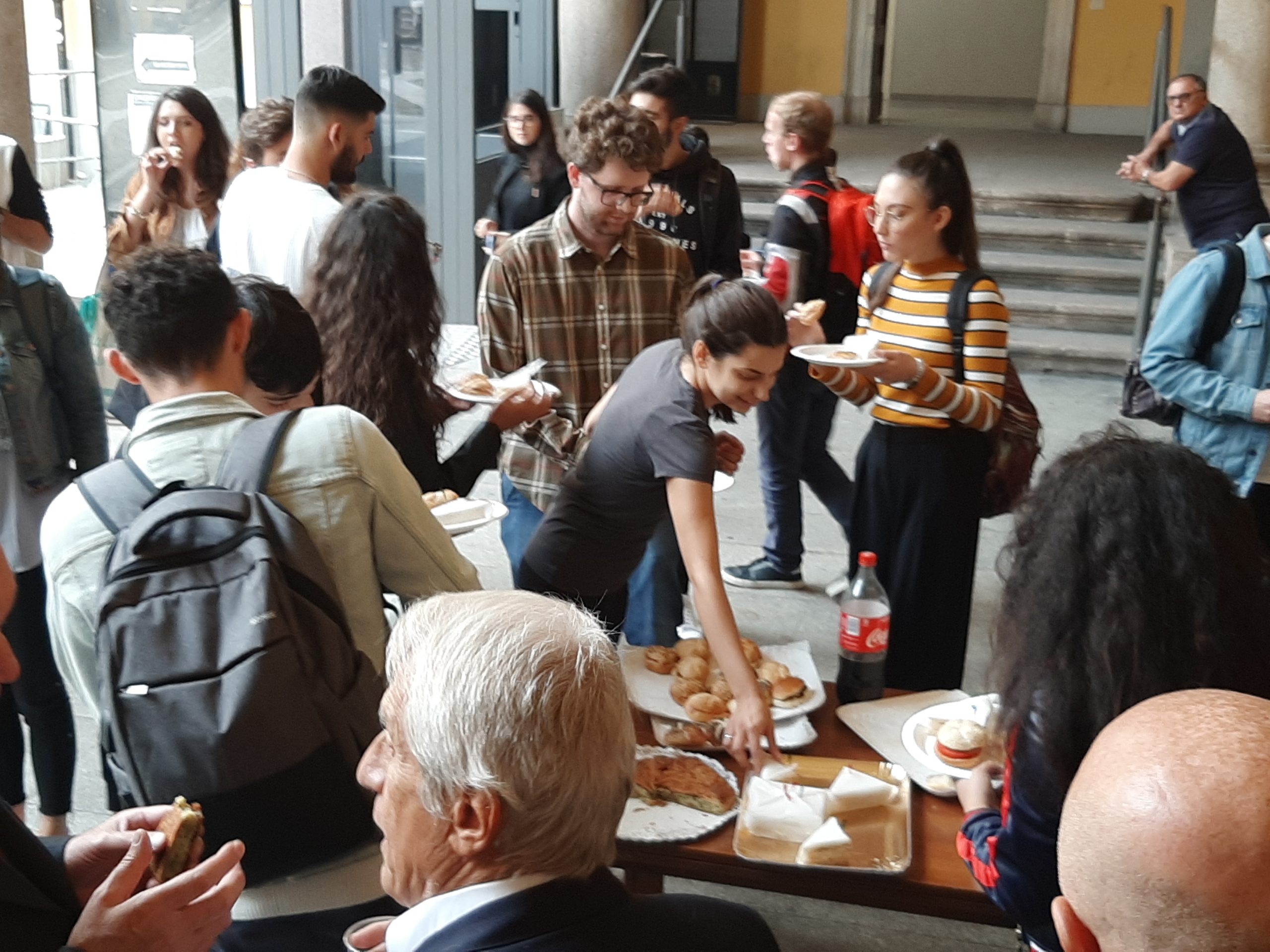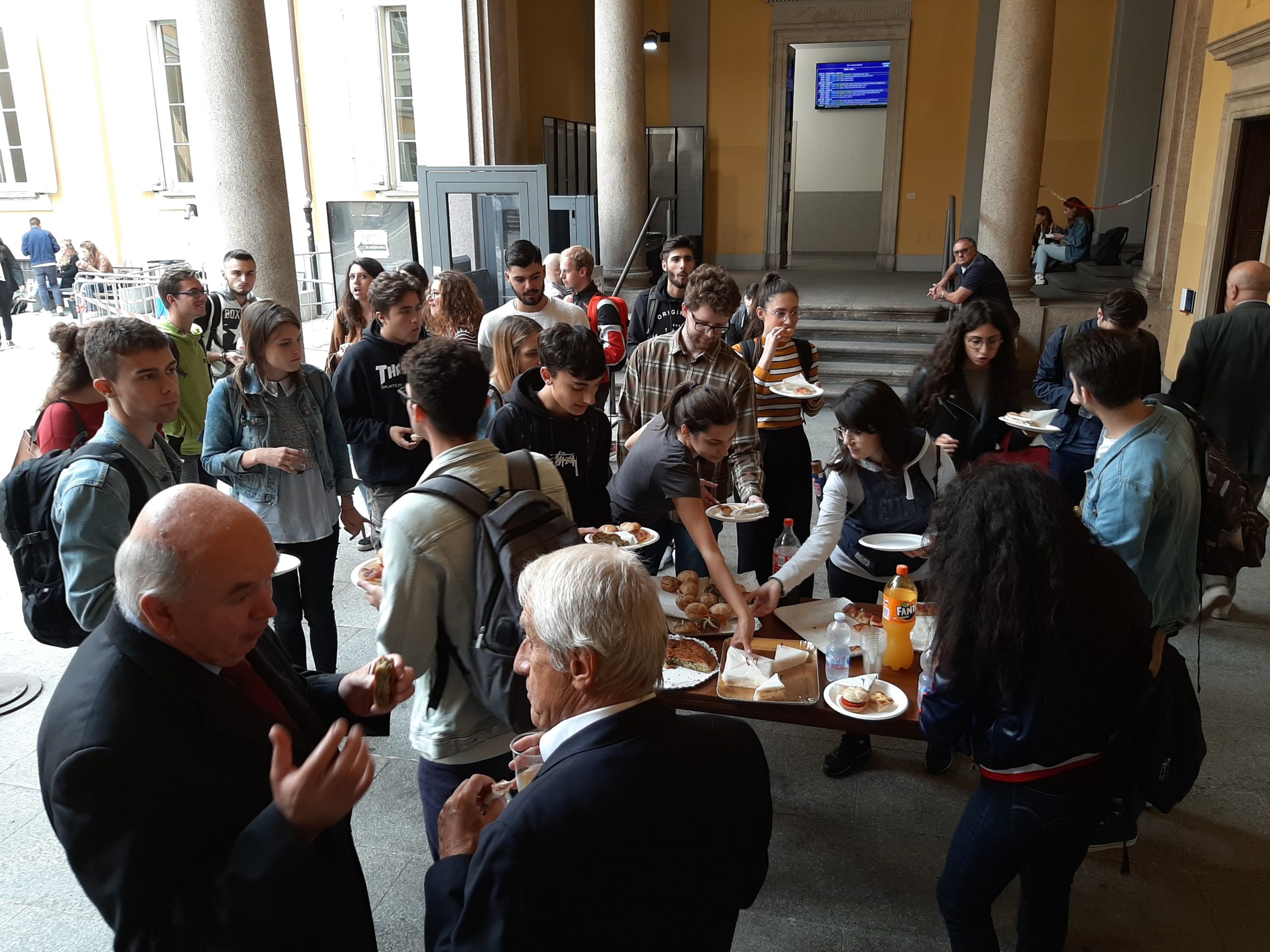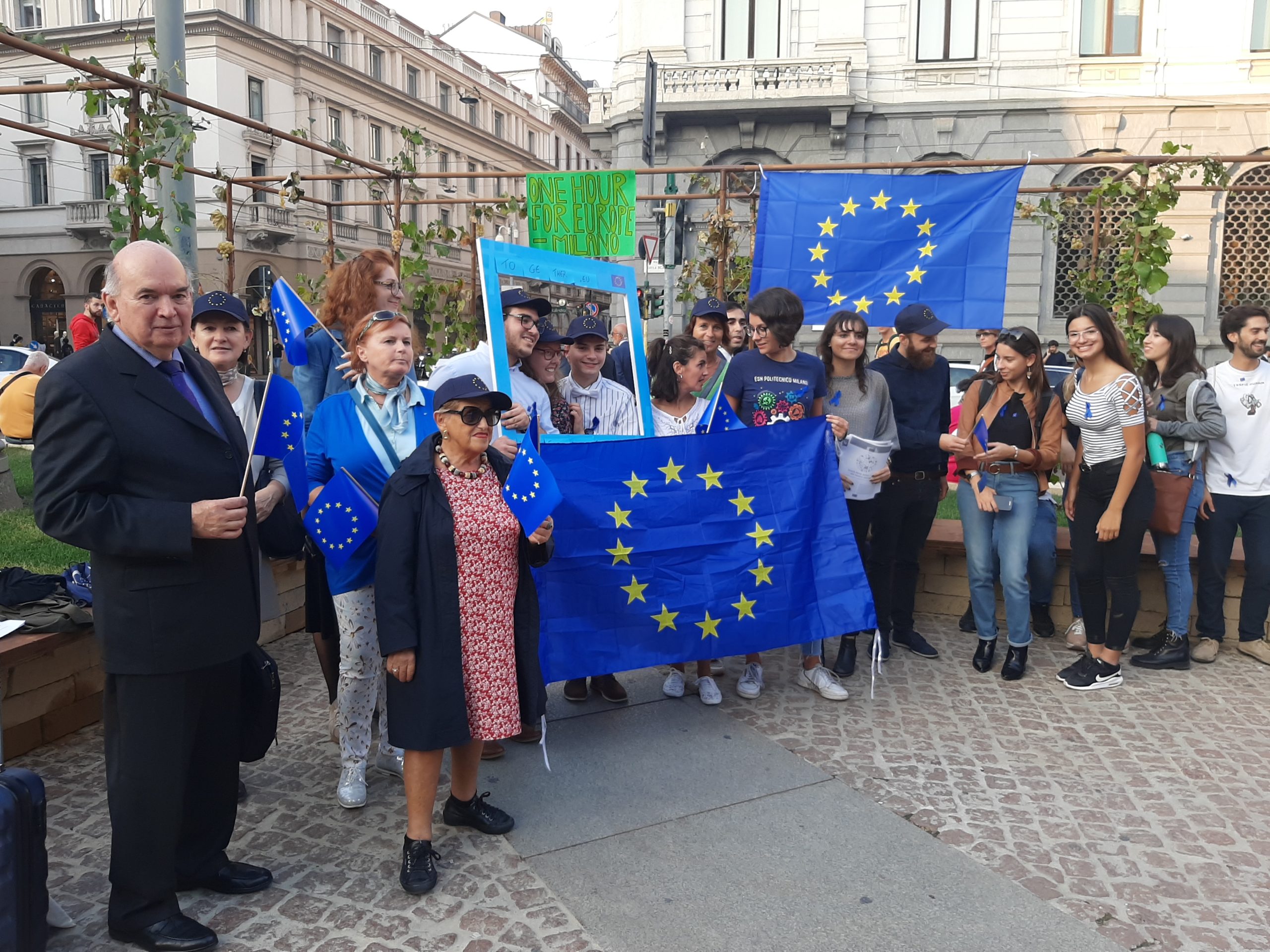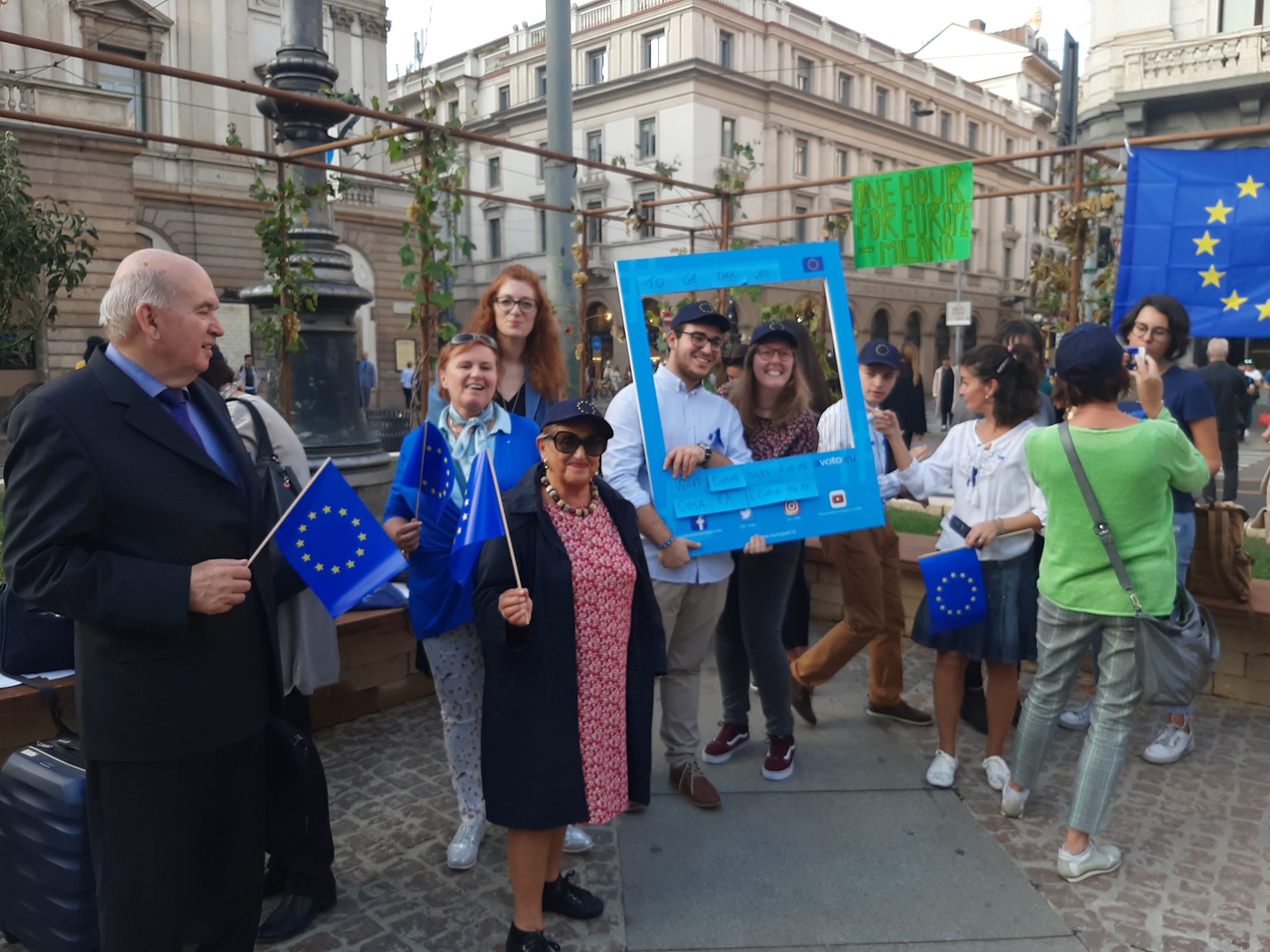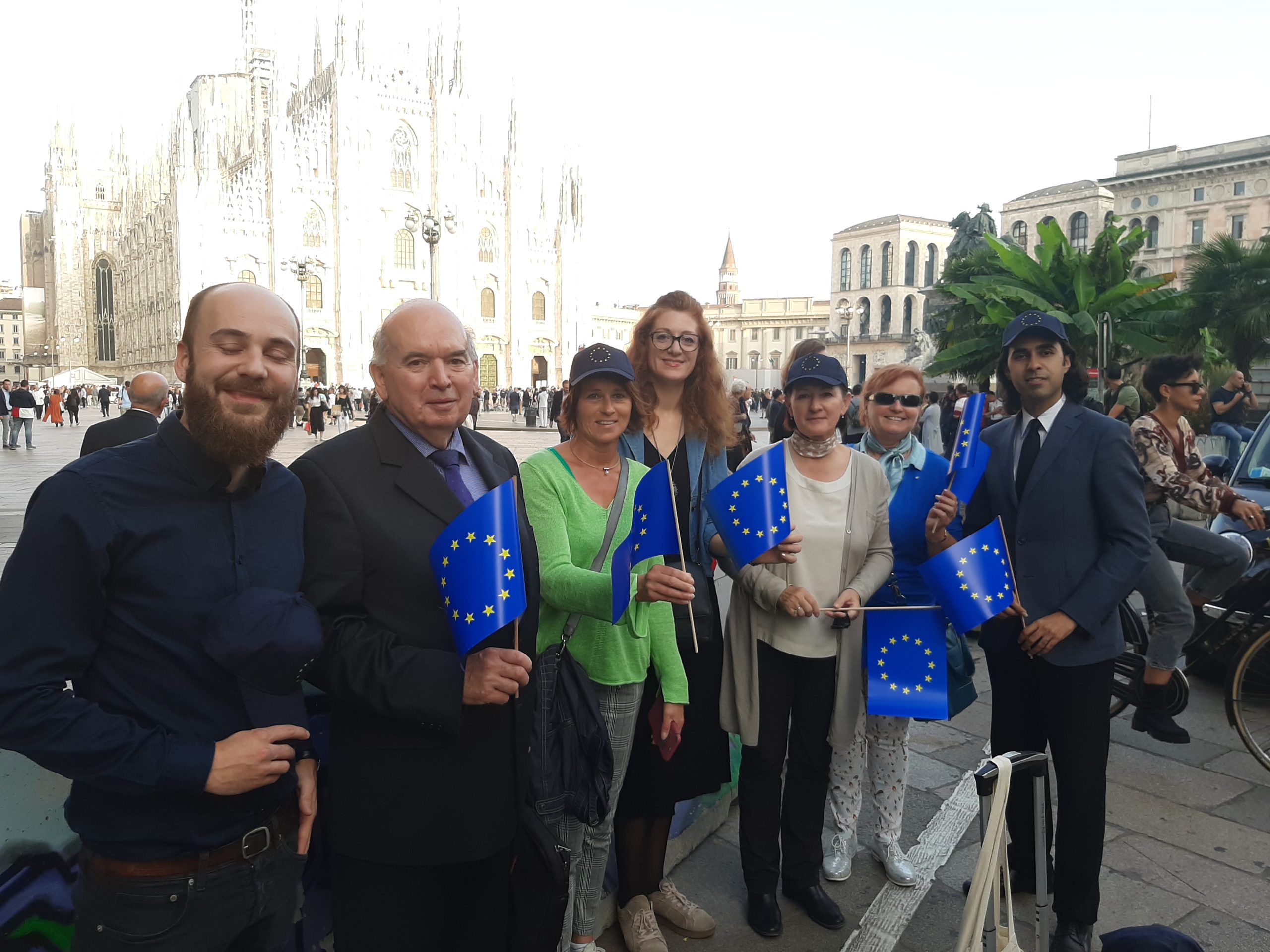Challenging EU scepticism
Milan,
26-27 September 2019
We have visited Milan after the EP 2019 elections to see what young people think about the future of Europe and how they see the role of the newly elected European Parliament in challenging EU scepticism.
We have teamed up with the Università degli Studi di Milano Facoltà di Scienze Politiche. Our opening panel was composed by Prof Piero Graglia and Prof Ruggero Cafari Panico.
The debate at the Università degli Studi di Milano started with the scolarly interpretation of the two types of Euroscepticism: its „hard” form has a principled oppesition towards almost everything about the EU what is considered as antidemocratic and impossible to reform. By contrast the advocates of „soft” version of Euroscepticism accept with certain reservation the EU as a political entity but oppose or criticise some of its integration areas or policy domains/institutions and seek reforms.
Participants were of the opinion that Eurosceptics had high hopes prior tot he latest (May 2019) EP elections that their presence and influence in the new Parliament will be significantly increased. Concrete cases were cited of their coordinated efforts aimed first of all at ordinary citizens in several Member States e.g. France, Germany, Hungary or Poland using biased or falso information. Fortunately and among other factors the increased voters turnout resulted in a significantly reduced and divided presence of their representatives in the new EP. Still it is expected that the Parliament will remain an organised stronghold and reference point for Eurosceptic views and promoted actions.
Brexit and its negative consequences were mentioned several times during the discussions especially in the cotext of misleading biased and anti-EU propagandistic information campaigns. It also revealed how falsly-tuned emotions can have a direct (and negative) influence on decisions influencing the course what a country takes. There are impostant lessons for the EU what should be learned from the Brexit experience.
What are the reasons for the relative „success” of Eurosceptic policies? A vivid discussion among the participants revealed several factors including
- correct identification of citizens’ concerns of their daily life (but with incorrect answers);
- building on pressing social difficulties eg. increased youth employment;
- capitalising ont he non-existance of an EU-level policy regarding the migration issue;
- using intensified and personalised emotinal campaigns;
- masterly use of simple, straightforward and easy-to-understand language;
- translating the eurozone difficulties into arguments for Euroscepticism;
- profiting from the frequently slow and non-efficient EU communication;
- building ont he still significant gap between the EU institutions and citizens.
How can populist and Eurosceptic tendencies and views be successfully faught back and overcome? An impressive number of proposals were put forward including
- establishing efficient channels of direct EU communication with citizens addressing their pressing daily concerns;
- forget standardised EU-level info materials: they are the victims of unnecessary consensus-seeking;
- institutional transparency is an indispensable condition for gaining public trust; opening the doors of the European Council should be a step in this direction;
- a successul European Citizens’ Intitiative (collection of 1 million signature in support of a given proposal) should be followed-up by a legislative proposal;
- systematic involvement of broad sectors of citizens and their monitoring its implementation should be intensified;
- massive use of social media.
The results of the discussion at the Università degli Studi di Milano were immediately and directly confronted with the daily reality of Milan: participants went out to the square in front of the Teatro alla Scala and met a significant group of local citizens demonstrating for Europe. A vivid discussion took place with them and it was rewarding to see their open attitude, interest and support for our seminar work. Project participants also attended a „Friday for Future” event, a huge public gathering in front of the Milan Cathedral.
Project participants also paid a visit to the Representative Office of the European Commission where its Head, Mr Massimo Gaudina gave comprehensive information on its many-sided activities including massive use of social media.
